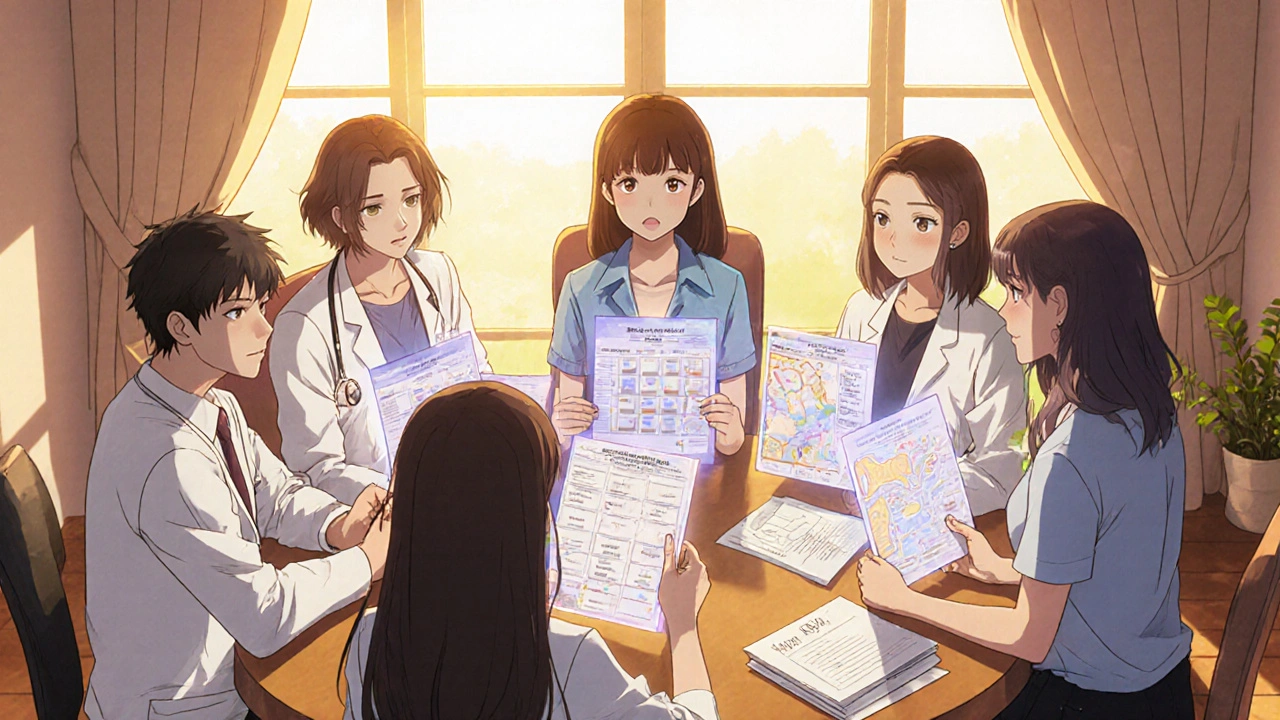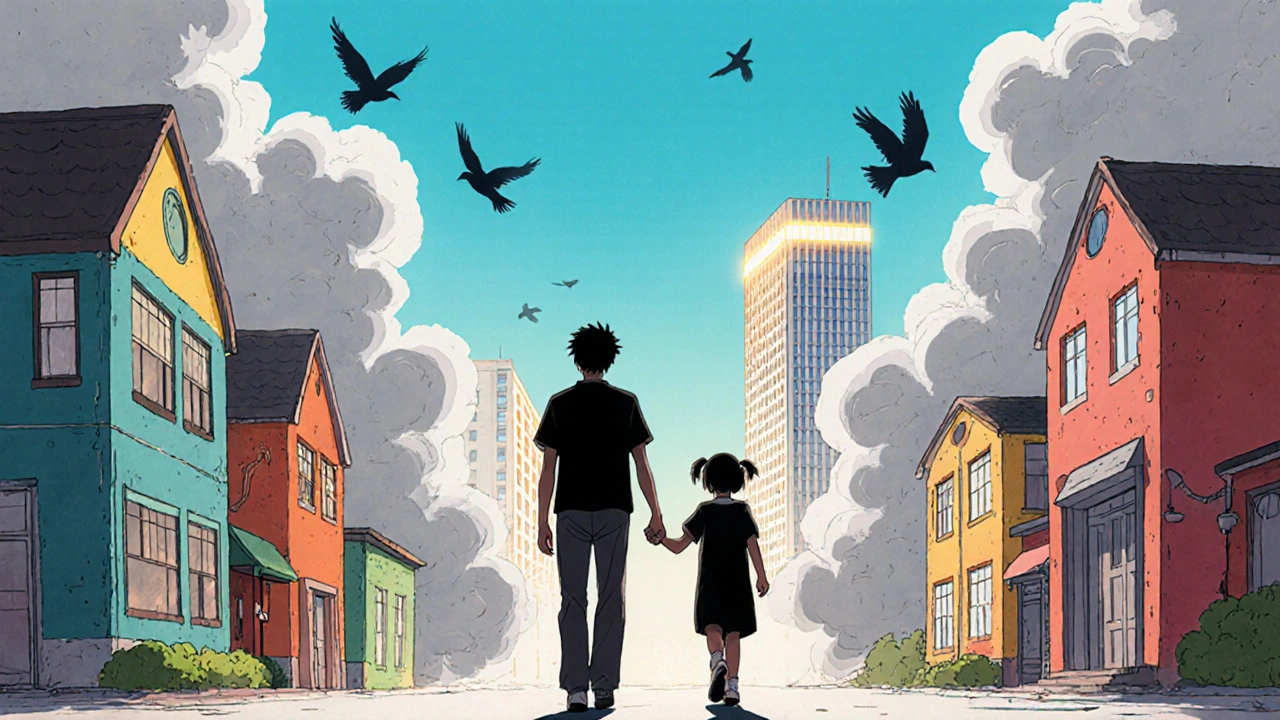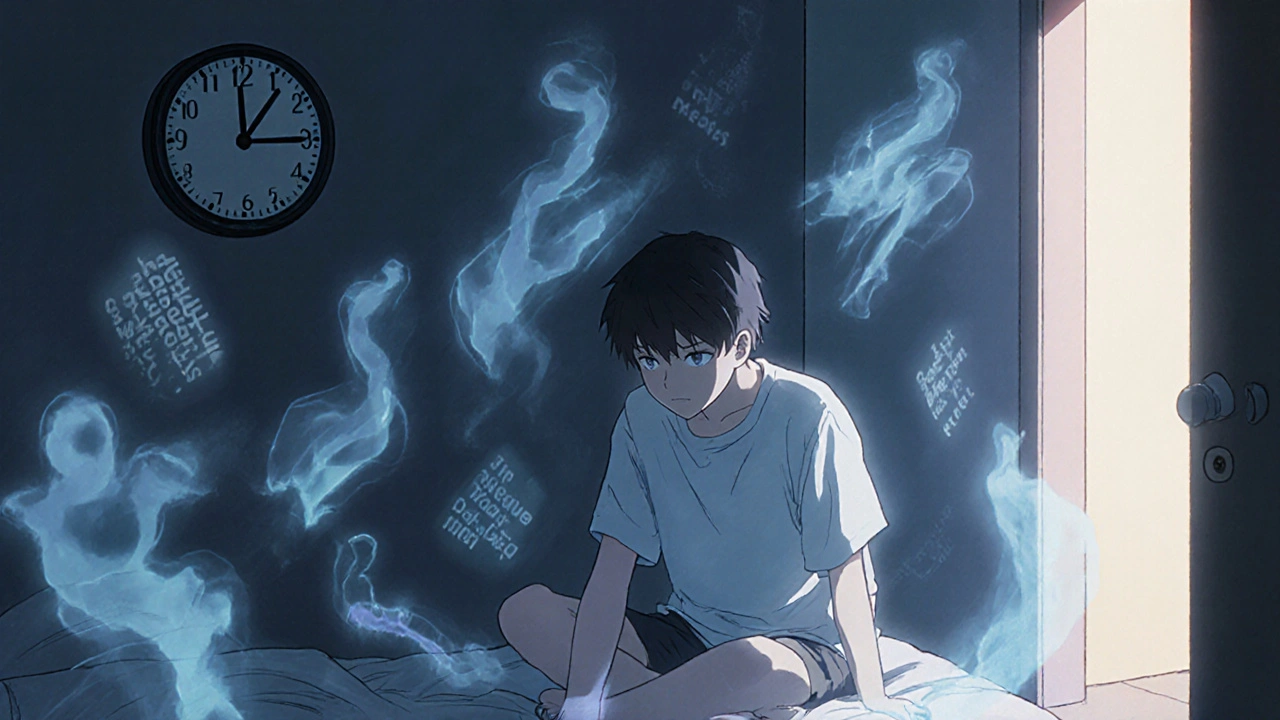What Happens During a First-Episode Psychosis?
Imagine waking up one day and the world doesn’t make sense anymore. Voices whisper when no one’s around. Strange beliefs take root - that someone’s watching you, that your thoughts aren’t your own. You feel scared, confused, and alone. This isn’t a dream. It’s first-episode psychosis - the first time someone experiences a break from reality. It usually hits between ages 15 and 35. It doesn’t mean someone is "crazy." It means their brain is sending mixed signals, and they need help, fast.
Psychosis isn’t one symptom. It’s a cluster: hallucinations (seeing or hearing things others don’t), delusions (fixed false beliefs), disorganized speech, and behavior that doesn’t match the situation. People often withdraw from friends, stop going to school or work, or seem "off" for weeks before anyone notices. By then, the window to help is closing.
Why Timing Matters More Than Anything Else
The clock starts ticking the moment psychosis begins. Research shows that if treatment doesn’t start within 12 weeks, the brain starts to change in ways that are harder to reverse. A delay of just 3 to 6 months can mean losing the ability to return to school, keep a job, or live independently.
That’s why the World Health Organization says: treat psychosis within 12 weeks. The RAISE project - a major U.S. study led by the National Institute of Mental Health - proved it. People who got coordinated specialty care (CSC) within that window had 45% better symptom relief than those who waited. Their quality of life improved. They stayed in school or found jobs. They didn’t end up in hospitals as often.
It’s not magic. It’s biology. The first year after psychosis is a window of neuroplasticity - the brain is still flexible enough to heal with the right support. After that, recovery becomes harder, slower, and more expensive.
What Is Coordinated Specialty Care (CSC)?
CSC isn’t just medication. It’s a full team approach. Think of it like a soccer team: each player has a role, and they all talk to each other every week. The team includes a psychiatrist, therapist, case manager, employment specialist, and family support worker. They work together - not in silos.
There are five core parts:
- Case Management: Someone helps you navigate the system - getting appointments, insurance, housing, transportation. They meet you 2-3 times a week during the worst months.
- Medication Management: Antipsychotics are used, but not at high doses. Guidelines say to start at half the usual dose for chronic cases. High doses increase side effects like weight gain and diabetes - without helping more.
- Recovery-Oriented Therapy: Cognitive behavioral therapy adapted for psychosis. You learn to recognize early warning signs, manage stress, and rebuild confidence - not just suppress symptoms.
- Family Psychoeducation: Families get 8-12 sessions over six months. They learn what psychosis is, how to respond without arguing, and how to support without smothering. This cuts relapse rates by 25%.
- Supported Employment and Education: This isn’t job training. It’s individualized coaching to get you back into school or work. The IPS model works: 50-60% of people in CSC get competitive jobs or return to school. In traditional care? Only 20-30% do.
Programs that follow these steps closely - with weekly team meetings and fidelity checks - see 65-75% of people stay in treatment for a year. In standard care? Only 40-50% stick with it.
How Families Make or Break Recovery
Families aren’t bystanders. They’re part of the treatment. When parents, siblings, or partners understand psychosis, they stop reacting with fear or anger. They learn to say, "I’m here," instead of "What’s wrong with you?"
Studies show that families who attend psychoeducation sessions reduce relapse risk by a quarter. Why? Because they learn:
- How to talk calmly during a crisis - no arguing with delusions
- What triggers stress (sleep loss, drugs, high pressure)
- How to encourage small wins - showing up to a class, making a meal, walking the dog
But here’s the hard truth: only 55% of families stay engaged. Some feel ashamed. Others don’t know where to turn. Programs in Louisiana and Washington State fixed this with mobile crisis teams and telehealth. They brought support to the home. They used Zoom when in-person visits weren’t possible. Family participation jumped 35%.
Don’t wait for someone to "get better" before you step in. Your presence - calm, consistent, and informed - is one of the strongest recovery tools available.

What Doesn’t Work - And Why
Many people still think psychosis means "lock them up and give them heavy meds." That’s outdated - and dangerous.
High-dose antipsychotics (over 400mg chlorpromazine equivalent) are common in community clinics. But the NICE guidelines say they offer no extra benefit and increase risks of diabetes, weight gain, and movement disorders. A 2022 study found 28% of providers still start at unsafe doses.
Another myth: "They just need to snap out of it." Psychosis isn’t laziness. It’s a medical condition. Telling someone to "just be strong" delays treatment and deepens shame.
And isolation? It’s toxic. People who lose their social ties during psychosis rarely recover fully. That’s why CSC teams focus on reconnection - not just symptom control.
Barriers to Getting Help - And How Some Are Overcoming Them
Even with proven results, CSC isn’t available everywhere. Only 35% of U.S. counties have a certified program. In rural areas? That number drops to 38% of counties with zero access. Medicaid covers CSC in only 31 states. Many families can’t afford to take time off work to attend sessions.
But change is happening. Washington State’s New Journeys program has trained 43 teams. Their fidelity scores? Over 75%. They’ve cut the average delay in treatment from 78 weeks to just 26 weeks.
Massachusetts trained 347 clinicians with 40 hours of classroom training and 120 hours of supervised practice. They didn’t just hand out brochures - they built expertise.
Telehealth helped during the pandemic. Mobile crisis units showed up at homes within 14 days. These aren’t luxuries. They’re lifelines.
The Cost of Waiting - And the Savings of Acting
Untreated psychosis costs the U.S. $155.7 billion a year - mostly from lost jobs, emergency rooms, and incarceration. Early intervention? That costs $28.5 billion. The math is clear: helping early saves money and lives.
Every dollar spent on CSC saves $3-$5 in long-term costs. That’s why SAMHSA gave $25 million in 2023 to expand FEP programs. But it’s not enough. Dr. Lisa Dixon warns: without stable funding, 80% of people with first-episode psychosis will still be left behind by 2027.
And the human cost? It’s worse. A young person who doesn’t get help may never finish school. They may lose their family. They may end up homeless or in jail. Recovery is possible - but only if we act before it’s too late.

What’s Next? Digital Tools and New Research
Technology is stepping in. Twenty-two CSC programs are testing the "PRIME Care" app. It tracks mood, sleep, and symptoms in real time. Early results show 30% fewer hospital visits.
The NIH is investing $50 million through 2026 to find biological markers for psychosis - things like brain scans or blood tests that could catch it before the first episode. That’s the future. But right now, the best tool we have is early, coordinated, family-involved care.
What You Can Do - Today
If you suspect someone you care about is experiencing psychosis:
- Don’t panic. Stay calm. Say: "I’ve noticed you’ve been struggling. I’m here to help."
- Don’t argue about delusions. Just say: "That sounds really scary. Let’s get you some support."
- Find a local CSC program. Go to EPINET.org or call the National Alliance on Mental Illness (NAMI) helpline.
- Ask about family sessions. You don’t need to wait for them to "be ready." Your involvement matters.
- Push for treatment within 12 weeks. Time is the most critical factor.
This isn’t about fixing someone. It’s about walking beside them - before the world falls apart.
What are the first signs of psychosis?
Early signs include social withdrawal, trouble sleeping, unusual thoughts or beliefs, declining school or work performance, strange speech patterns, and heightened sensitivity to sounds or lights. These often appear weeks or months before a full psychotic episode. It’s not just being "odd" - it’s a noticeable drop in functioning that doesn’t match the person’s usual behavior.
Can psychosis be cured?
Psychosis isn’t something you "cure" like an infection. But with early, coordinated care, most people recover enough to live full lives - going to school, working, having relationships. The goal isn’t to erase all symptoms, but to reduce them enough that they no longer control your life. Many people never have another episode after proper treatment.
Do I need to be on medication for life?
Not necessarily. In first-episode psychosis, doctors start with low doses and adjust slowly. Many people can reduce or stop medication after 1-2 years if symptoms stay stable and they have strong support. But stopping too soon increases relapse risk. Decisions are made together with the treatment team - never forced.
How do I find a Coordinated Specialty Care program near me?
Visit EPINET.org - the Early Psychosis Intervention Network - and use their provider map. You can also call NAMI at 1-800-950-NAMI (6264) or text "HelpLine" to 62640. Most programs are tied to university hospitals or community mental health centers. If none exist nearby, ask for a referral to a psychiatrist experienced in early psychosis.
What if my family won’t participate in therapy?
Even if family members won’t join sessions, you can still benefit. Many programs offer individual counseling for the person with psychosis, and you can learn coping strategies on your own. Some programs now offer online family modules you can access alone. Your own calm, supportive presence makes a difference - even without formal training.
Is psychosis the same as schizophrenia?
No. Psychosis is a symptom - like a fever. Schizophrenia is one possible diagnosis that can follow repeated episodes. Many people who have one episode of psychosis never develop schizophrenia. Early intervention reduces the chance of progression. The focus should be on treating the episode, not labeling the person.
Can drugs cause psychosis?
Yes. Marijuana, especially high-THC strains, can trigger psychosis in vulnerable people. Methamphetamine and hallucinogens can too. But even if drugs played a role, the person still needs treatment. Stopping use is part of recovery - but not the whole solution. Treatment must address the underlying brain changes, not just the substance use.
Final Thought: This Isn’t Just Medical - It’s Human
First-episode psychosis doesn’t happen in a vacuum. It happens to sons, daughters, siblings, friends. It happens to people who were just starting college, getting their first job, falling in love. The system often fails them - but it doesn’t have to.
Early intervention isn’t a luxury. It’s the most effective, cost-efficient, and compassionate way to help someone reclaim their life. And family support? It’s not optional. It’s the glue that holds recovery together.
If you see someone slipping - don’t wait. Don’t assume they’ll grow out of it. Don’t be afraid to ask. Your action - right now - could change everything.

